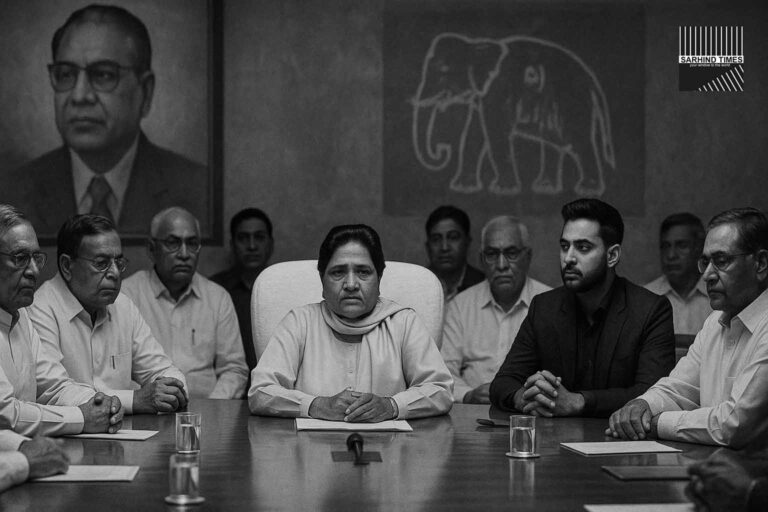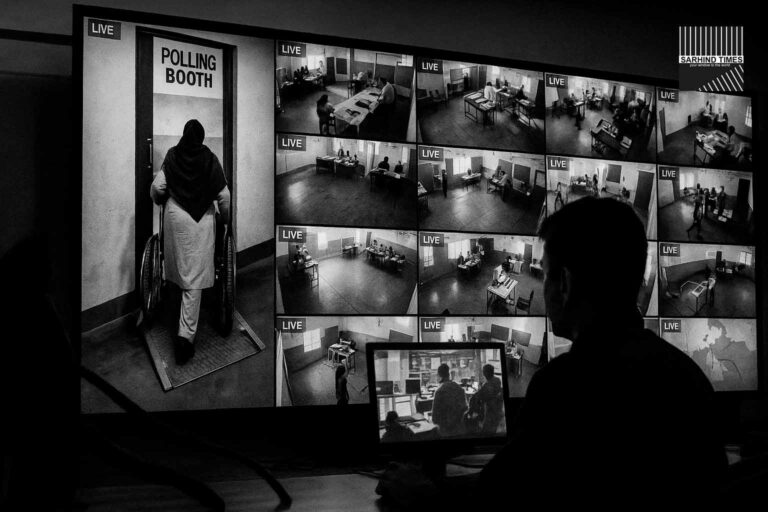Parliament will reconvene for the Winter Session 2025 from November 25 to December 20, according to an official announcement by Parliamentary Affairs Minister Kiren Rijiju. With a packed legislative agenda expected to include economic reform, technology governance, and social welfare measures, the session is seen as a crucial bridge between the monsoon debates and the pre-budget year. Political temperatures are already rising, with both treasury and opposition benches preparing for a heated close to the parliamentary calendar.
New Delhi, October 22 —
India’s democratic theatre is set to raise its curtain again. The Winter Session of Parliament will commence on November 25 and conclude on December 20, lasting four weeks. The announcement came via social media and an official circular from the Ministry of Parliamentary Affairs, confirming what had been long anticipated across political corridors.
“The Winter Session 2025 will begin on 25 November and continue until 20 December. We expect constructive discussions and cooperation from all parties,”
tweeted Kiren Rijiju, Union Minister for Parliamentary Affairs.
This session will likely be the final full sitting before the pre-budget recess, making it critical for pushing pending bills and policy updates that the government wants cleared before the new fiscal year.
A Return to the House
The last monsoon sitting ended with both Houses adjourned amid disruptions over price rise, inflation data, and Centre–state fiscal relations. With the legislative calendar tight, the upcoming session will be a balancing act — between governance and politics, productivity and protest.
Officials indicate the session will feature 18–20 working days, potentially accommodating 20 to 25 bills, including both new proposals and re-introductions.
Expected Legislative Highlights
According to parliamentary sources and ministry insiders, the following key items are expected:
- Digital India Bill, 2025 — to replace the decades-old IT Act 2000, defining rules for AI, deepfakes, and data protection.
- Public Procurement Reform Bill — streamlining government tendering to curb delays and promote MSMEs.
- Electric Mobility (Amendment) — expanding incentives for EV infrastructure.
- Uniform Civil Code draft — if tabled, could dominate headlines, given its social sensitivity.
- Labour Codes Implementation Review — expected statement from the Labour Minister on phased rollout.
- National Coastal Protection Policy Bill — environmental safeguards for coastal states amid climate concerns.
- Supplementary Demands for Grants — a financial exercise to authorise additional spending before the Budget Session.
Each of these bills touches on major governance areas — digital transformation, jobs, gender rights, environment, and fiscal transparency.
Political Context: The Pre-Election Undercurrent
Though the general elections are months away, this Winter Session will double as a stage for pre-election positioning. Opposition parties are expected to corner the government over:
- unemployment data discrepancies,
- agrarian distress and MSP promises,
- transparency in electoral bond funding,
- alleged misuse of investigative agencies.
“The House is where accountability begins. We’ll raise real issues — jobs, prices, farmers,” said Mallikarjun Kharge, Leader of Opposition in Rajya Sabha.
The ruling alliance, for its part, plans to project fiscal prudence, infrastructure achievements, and digital reforms as proof of effective governance.
Inside the Strategy Rooms
In North Block, ministers are reviewing status reports on earlier bills. The Law Ministry and Electronics & IT Department (Digital India Bill) have been instructed to submit “ready-for-introduction” drafts by mid-November. The Finance Ministry is also preparing interim economic statements — a preview of Budget 2026.
The Business Advisory Committees of both Houses will finalise day-wise scheduling, ensuring at least 40 hours of legislative time exclusive of Question Hour and Zero Hour.
Public Expectations
Civil society organisations have already flagged what they expect from this session:
- Transparency Watch India urges debate on RTI amendments and digital governance ethics.
- Farmers’ Unions demand clarity on pending MSP legislation.
- Women’s groups seek expedited passage of the Women’s Reservation (Implementation) Bill.
“A parliamentary session is meaningful only when citizens feel heard,” said Anjali Bhardwaj, RTI activist.
The Numbers Game
| House | Total Seats | NDA Strength | Opposition Strength | Neutral/Others |
| Lok Sabha | 543 | 331 | 200 | 12 |
| Rajya Sabha | 245 | 118 | 102 | 25 |
The government retains a comfortable working majority but will need bipartisan cooperation for bills requiring constitutional amendments or special majority clauses.
The Tone of Debate
Speakers of both Houses, Om Birla and Jagdeep Dhankhar, have emphasised decorum and productivity. The Monsoon Session logged only 45 percent effective working time — a record low in three years. Efforts are being made to prevent disruptions via pre-session coordination meetings.
Parliament TV will again air debates in real time, providing transparency to citizens watching from home or smartphones.
Spotlight on Technology & Reform
If introduced, the Digital India Bill could be one of the most consequential pieces of legislation this decade. It proposes penalties for misuse of AI and deepfakes, clearer obligations for social-media intermediaries, and a framework for algorithmic accountability.
“Technology has outpaced law; this session aims to bridge that gap,” remarked Rajeev Chandrasekhar, MoS for IT.
Industry bodies like NASSCOM and FICCI are preparing detailed submissions to committees once the bill is introduced.
Economy in Focus
With global markets uncertain, fiscal policy will dominate discussion. Expect statements on:
- GST revenue trends,
- fiscal deficit trajectory,
- capex targets and state allocations,
- review of PM Gati Shakti and PLI schemes.
Opposition benches will demand clarity on employment data and price control mechanisms. The Finance Minister is likely to present an “economic mid-term report card.”
The Reform vs Welfare Debate
Political analysts predict the session will crystallise two contrasting narratives:
- Government: growth through reforms and digital empowerment.
- Opposition: growth with equity and employment.
“The debate is no longer about growth rate percentages but about who feels that growth,” said economist Dr. Reetika Khera.
Beyond the Bills
The session may also see:
- Discussions on India’s G20 follow-up initiatives.
- Updates on defence procurement and space missions.
- Possible private members’ bills on AI ethics and climate finance.
Members have been advised to file notices by early November for short-duration debates and Zero Hour mentions.
Security and Protocol
After recent breaches and public protests, the Lok Sabha Secretariat is tightening entry norms:
- QR-coded passes for visitors,
- RFID-enabled movement tracking for staff,
- enhanced AI-assisted CCTV monitoring.
Officials say these upgrades are part of a long-term Parliament Modernisation Plan that includes digital attendance and paperless document workflow.
Voices from the Gallery
Senior journalist Prakash Nair, covering Parliament for three decades, commented:
“Each Winter Session reveals the mood of the nation. This time, the stakes are high — for both policy credibility and political messaging.”
Political satirists meanwhile note the renewed buzz around tea stalls in Central Vista. The Parliament canteen menu is changing to include a “Millet Meal Combo,” a nod to India’s UN-declared Millet Year theme.
History and Continuity
India’s Parliament has held Winter Sessions almost every year since 1952, except during emergencies or pandemics. The average duration is 24 days, with an average of 18 bills passed per session. Notable historical moments include:
- The 1966 discussion on food security,
- The 1971 Indo-Pak war briefing,
- The 2019 citizenship debates.
The 2025 session could add its own chapter if major tech or civil reform legislation passes.
Conclusion: Democracy in Session
For India, each parliamentary sitting is a reminder of democracy’s daily work — slow, imperfect, and indispensable. The Winter Session is expected to be contentious but crucial: a forum to resolve policy logjams and signal governance continuity before the new budget cycle.
The people may not crowd the visitor’s gallery, but their voices echo through each question asked and each bill voted upon. If the session delivers both dialogue and decision, the coming winter may yet feel warmer for Indian democracy.
#WinterSession #ParliamentOfIndia #LegislativeAgenda #KirenRijiju #LokSabha #RajyaSabha #Democracy #SarhindTimes




+ There are no comments
Add yours